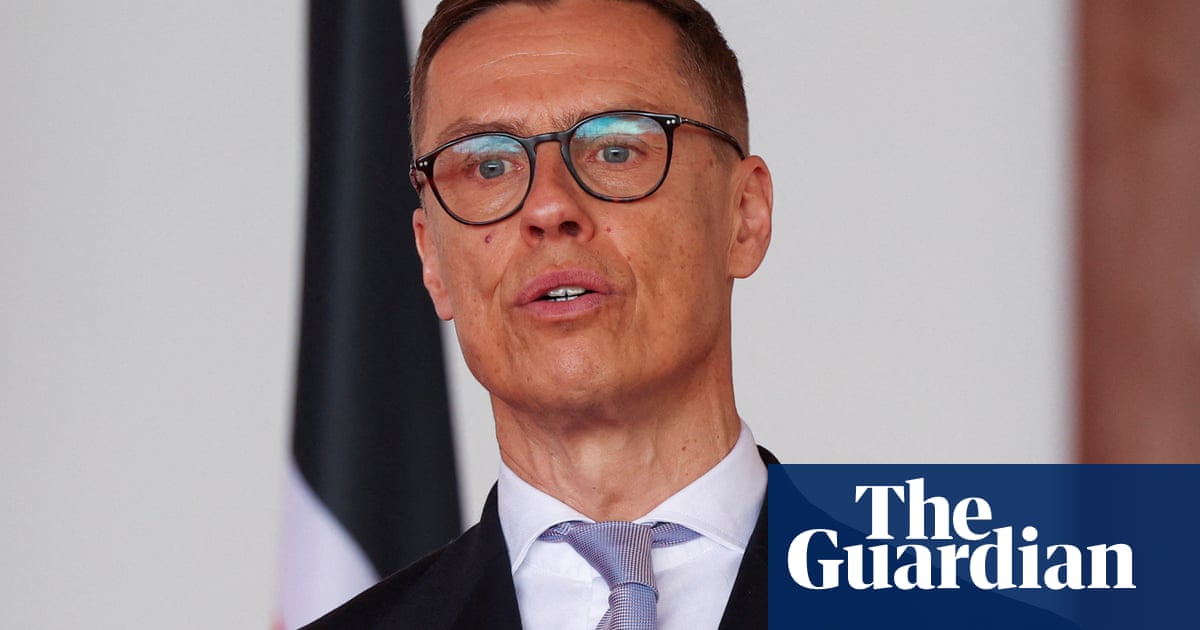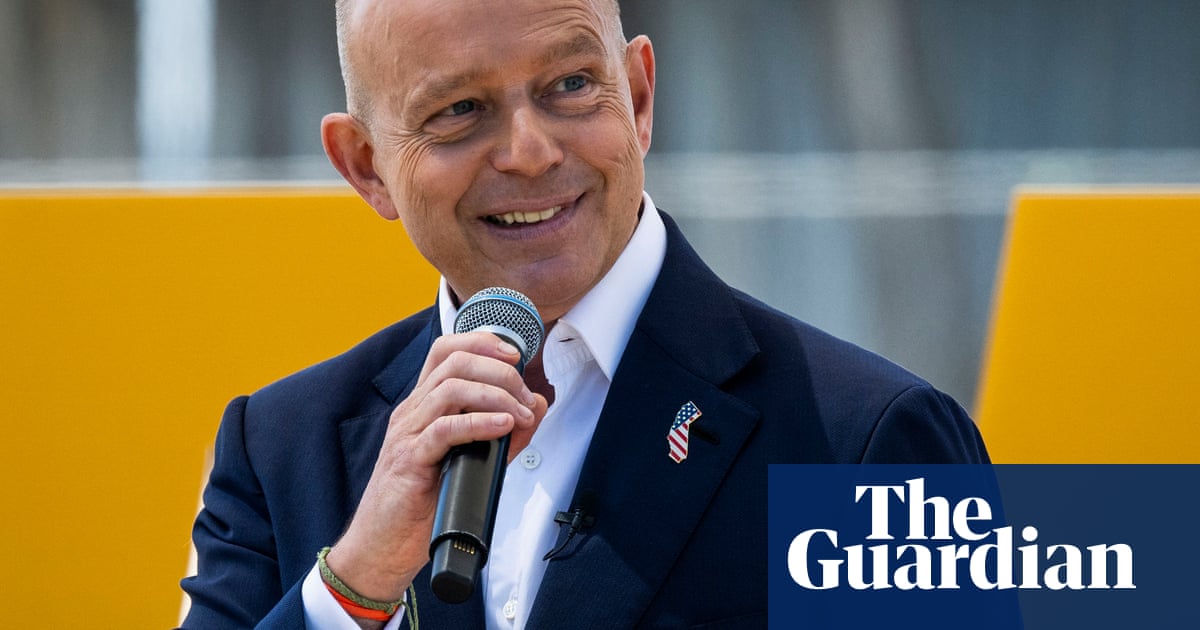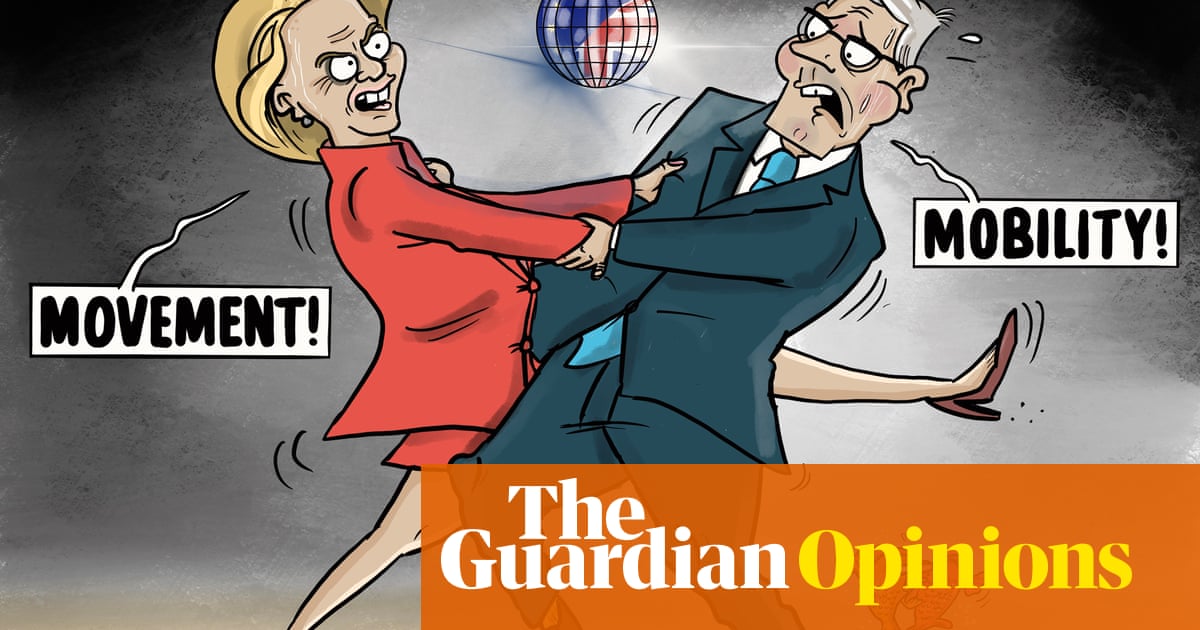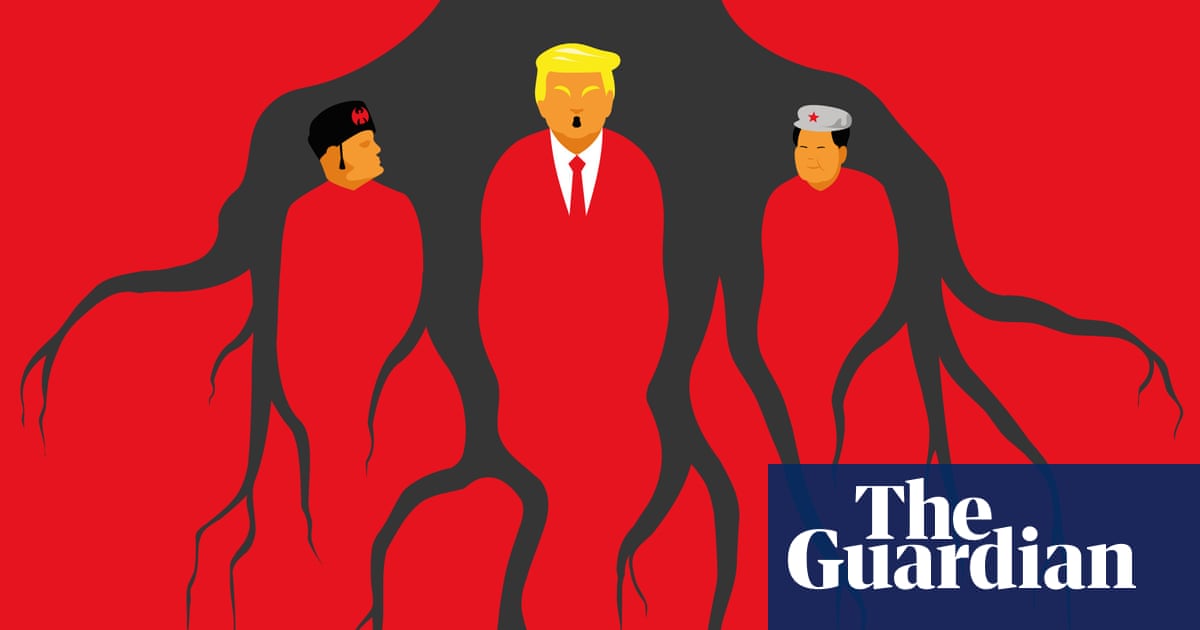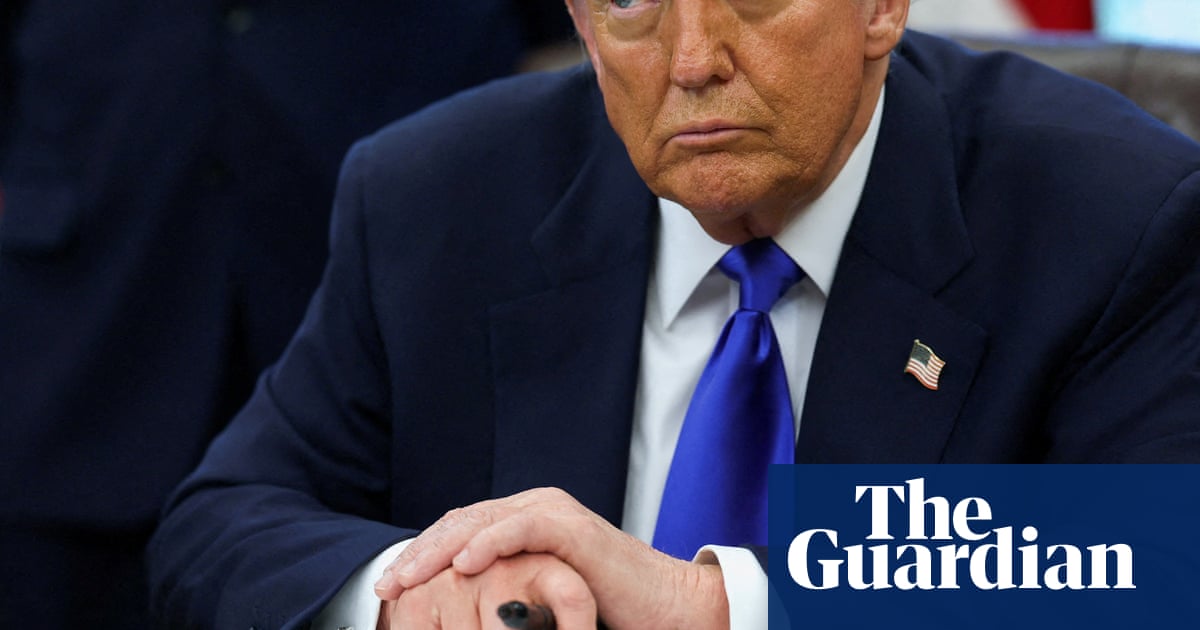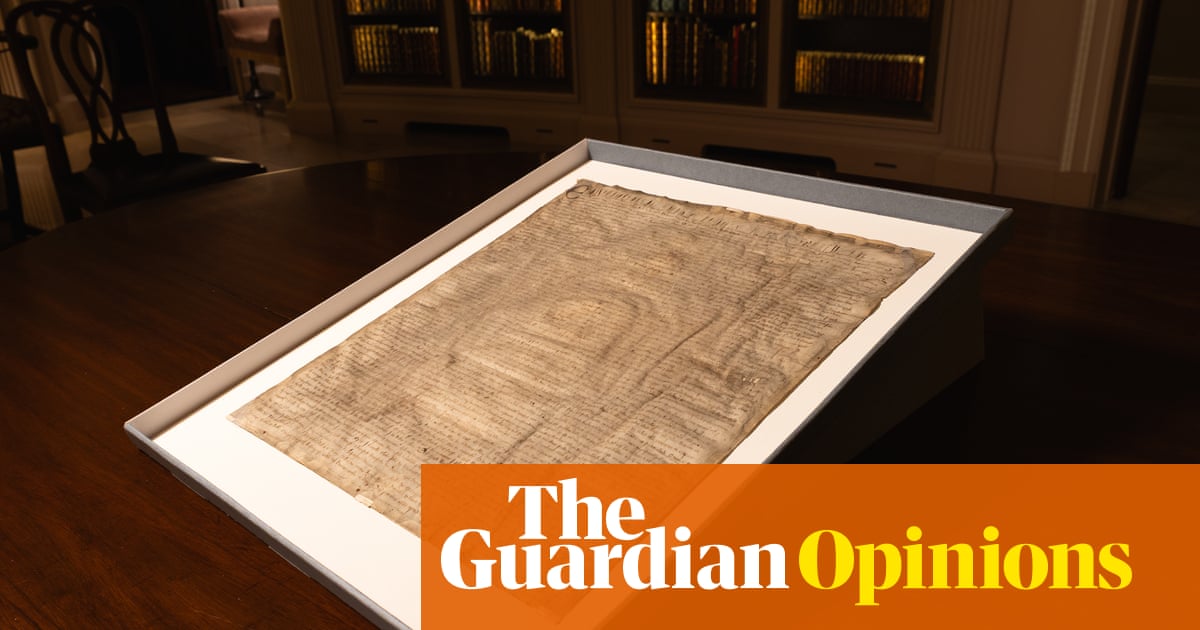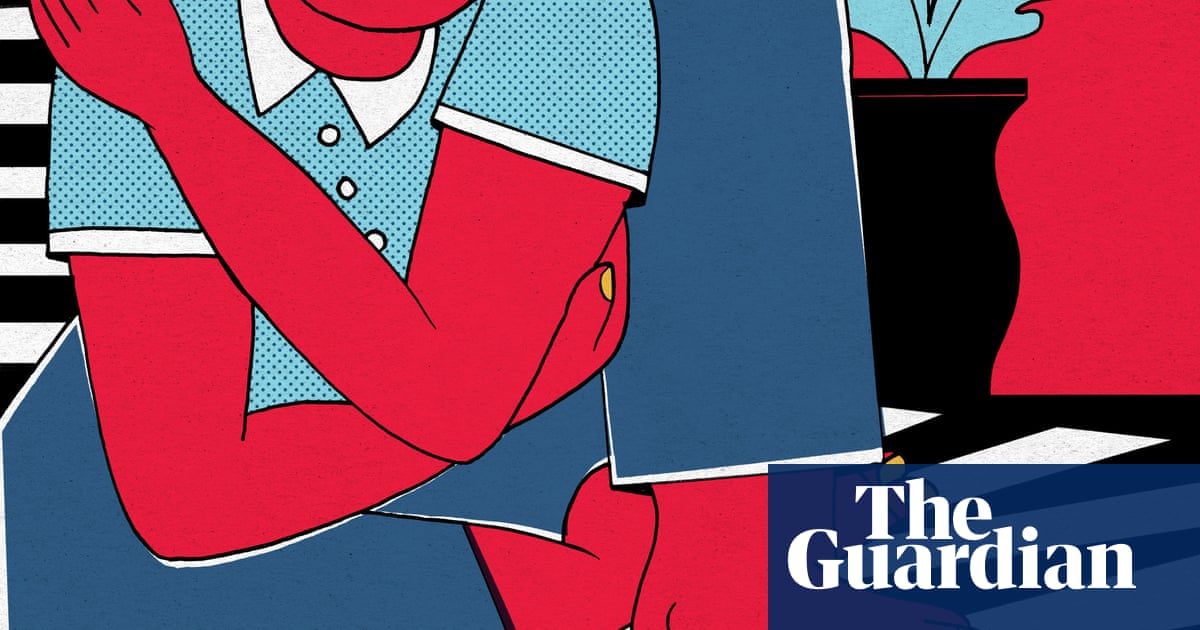As Donald Trump abandons any pretense of promoting human rights abroad, he has sparked concern about the future of the human rights movement. The US government has never been a consistent promoter of human rights, but when it applied itself, it was certainly the most powerful. Yet this is not the first time that the human rights movement has faced a hostile administration in Washington. A collective defense by other governments has been the key to survival in the past. That remains true today.
Trump no doubt poses a serious threat. He is enamored of autocrats who rule without the checks and balances on executive power that he would shirk. He has stopped participating in the UN human rights council and censored the US state department’s annual human rights report. He has summarily sent immigrants to El Salvador’s nightmarish mega-prison, proposed the mass ethnic cleansing of Palestinians from Gaza and threatened to abandon Ukraine’s democracy to Vladimir Putin’s invading forces.
Even when his government has occasionally issued a rights-related protest – regarding Thailand’s deportation of Uyghurs to China or Rwanda’s invasion of eastern Democratic Republic of the Congo via its cold-blooded M23 proxy force – the intervention has been half-hearted and not sustained.
Yet the human rights movement survived Trump’s hostility during his first term, as well as such challenges as the George W Bush administration’s systematic torture and arbitrary detention in Guantánamo Bay and the Ronald Reagan administration’s support for brutal cold war allies. The most effective response, as I describe in my recent book, Righting Wrongs, was always to build coalitions of governments willing to defend human rights. Together, they had the moral and political clout to hold the line despite US opposition.
In the first Trump administration, for example, the UN human rights council condemned Nicolás Maduro’s dictatorship in Venezuela and established a fact-finding mission to monitor and report on his repression. Had Trump led the effort, Maduro might have dismissed it as Yanqui imperialism, but Trump had withdrawn from the council. Instead, the effort was led by a group of Latin American democracies plus Canada, operating as the Lima Group. They offered a principled defense of human rights that prevailed.
Similarly, Trump played no role when my colleagues and I encouraged Germany, France and Turkey to pressure Vladimir Putin to stop Syrian-Russian bombing of hospitals and other civilian institutions in Syria’s north-western Idlib province. That initiative forced Putin to halt the bombing in March 2020, sparing 3 million civilians the constant threat of death from the skies. In December 2024, the HTS rebel group emerged from Idlib to overthrow Syria’s ruthless president, Bashar al-Assad.
Nor was the US supportive when, in September 2017, the Netherlands led a small group of governments that persuaded the council to investigate and report on the Saudi-led coalition’s bombing of civilians in Yemen. When that scrutiny was lifted four years later, Yemeni civilian casualties doubled, showing that the bombers had behaved better when watched.
When Trump withdrew from the council, the United States was replaced by tiny Iceland. Aided by the perception that it had no special interest other than a principled concern with human rights, it convinced the council to scrutinize the “drug war” summary executions by the former Philippine president Rodrigo Duterte. Duterte is now in custody in the Hague on an international criminal court arrest warrant.
Even Democratic presidents have sometimes vehemently opposed human rights initiatives. Bill Clinton’s administration was dead set against the creation of an international criminal court that could ever prosecute a US citizen. It tried one ploy after another to secure an exemption.
A coalition of some 60 small and medium-sized governments from all parts of the world resisted. Their combined moral clout was enough to stand up to the superpower. When the final vote was held in Rome to establish the ICC in July 1998, the United States lost overwhelmingly, 120 to 7. A comparable coalition was behind the adoption of the treaty banning antipersonnel landmines, despite opposition by Washington and other major powers.
Similar coalitions are key to defending human rights today. We see that already as an array of European governments refuses to accept Trump’s inclination to sacrifice Ukraine’s democracy to Putin’s aggression. We see it as Arab states, despite jeopardizing substantial US military aid, reject Trump’s war-crime proposal to “solve” the Israeli-Palestinian conflict in Gaza by expelling the Palestinians. We see it as the UN human rights council, despite the US absence, continues to play an essential role in defending rights in such countries as Myanmar, North Korea, Belarus and Iran.
But there is much more to be done.
For example, Trump shows little interest in the fate of the Uyghurs. He once reportedly told Xi Jinping that China’s detention of 1 million of them (of a population of 11 million) “was exactly the right thing to do”. But western governments have not yet matched US law, adopted under Joe Biden, that presumptively bars all imports from the Chinese region of Xinjiang, where most Uyghurs live, unless the imports can be proven not to have been made through forced labor.
That is an important way to avoid complicity when Beijing blocks efforts to investigate supply chains in China. If other western governments went beyond a theoretical opposition to Uyghur forced labor, which cannot be upheld amid China’s obfuscation, to adopt a similar presumption against all imports from Xinjiang, it would go a long way toward ending this despicable practice.
after newsletter promotion
The Biden administration imposed sanctions on seven United Arab Emirates companies for their role in arming the genocidal Rapid Support Forces in Sudan’s Darfur region, where one of the world’s worst atrocity-induced humanitarian crises is unfolding. Other western governments should match or extend those penalties.
Rwandan president Paul Kagame’s invasion of eastern Democratic Republic of the Congo via the M23 force also calls out for concerted resistance. In 2013, the Obama administration, working closely with the British government, forced Kagame to end his support of the M23 by threatening to suspend Rwanda’s aid. The M23 immediately collapsed. Now that Rwanda is again using the M23 to invade eastern DRC, similar pressure is needed – not just condemnation, which has happened, but the suspension of aid, which has only begun to occur.
The Trump administration, evidently seeking access to the region’s mineral wealth, has helped to negotiate a ceasefire between Rwanda and DRC but not the withdrawal of Rwandan forces or the M23 from DRC. That next step will come only with tougher economic pressure. But the European Union has done the opposite. In July 2024, it entered into a deal with Rwanda for minerals, a virtual invitation to export the proceeds of illegal mining in eastern DRC. Trump now seems to be doing the same.
Western governments have also been tepid in responding to Trump’s outrageous sanctions on the international criminal court prosecutor Karim Khan (freezing his assets and limiting his travel to the United States) for having quite properly charged Benjamin Netanyahu and the Israeli prime minister’s former defense minister Yoav Gallant for the war crime of starving and depriving Palestinian civilians in Gaza. All ICC members should support Khan if he in turn criminally charges Trump for obstruction of justice under article 70 of the Rome Statute, which prohibits threatening or intimidating court personnel for the performance of their official duties – exactly what Trump has done.
Despite Trump’s expressed interest in staying on as “king”, his reign will end. The question is what damage he will do to the human rights cause. Whether he leaves a global crisis or merely a discredited US government will depend in significant part on how other governments respond – whether they emulate or resist Trump’s indifference.
Today, many governments are understandably concerned with simply managing the turmoil that Trump has caused, from tariff increases to military abandonment, but the need is urgent for them also to keep their broader responsibilities in mind. History shows that if they mount a concerted defense, the human rights movement will survive this rough patch. The rights of people around the world depend on such a principled, collective commitment.
-
Kenneth Roth, former executive director of Human Rights Watch (1993-2022), is a visiting professor at Princeton’s School of Public and International Affairs. His book, Righting Wrongs: Three Decades on the Front Lines Battling Abusive Governments, was published by Knopf and Allen Lane in February

.png) 4 hours ago
2
4 hours ago
2


